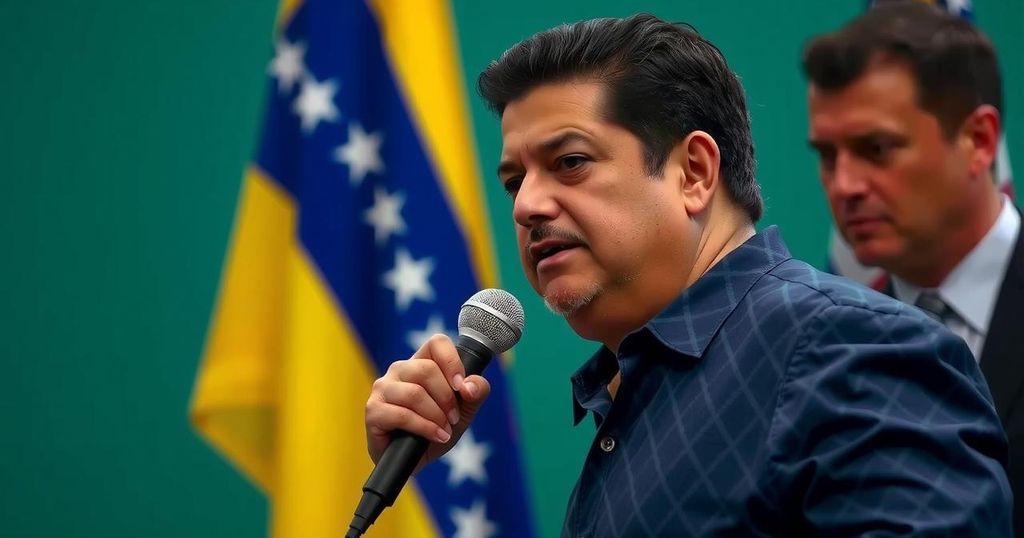The U.S. imposed sanctions on 21 allies of President Maduro over post-election repression allegations. Key figures sanctioned include senior security and intelligence officials. The Biden administration has recognized opposition leader Edmundo González as the “president-elect” amid ongoing political turmoil in Venezuela, while the effect of the sanctions on Maduro’s grip on power remains uncertain.
The United States government has expanded its sanctions to include 21 additional officials who are allies of Venezuelan President Nicolás Maduro. These sanctions are based on allegations that these individuals engaged in acts of repression following the disputed presidential election held in July. Noteworthy among the sanctioned individuals are the head of Venezuela’s corrections agency and the director of the country’s intelligence services.
The sanctions, imposed by the Department of the Treasury, follow a prior set of sanctions against 16 Maduro allies for similar reasons, which included obstructing the electoral process and perpetrating human rights violations. The Biden administration has recognized opposition candidate Edmundo González as the legitimate president of Venezuela, notwithstanding President Maduro’s self-proclaimed victory in the election, the validity of which he has failed to substantiate with official vote counts.
Furthermore, the United States has placed visa restrictions on additional individuals labeled as responsible for the repression that ensued after the July 28 election. Despite these actions, the tangible effects of the sanctions remain uncertain, as many Maduro loyalists continue to maintain significant power within the Venezuelan government. Concurrently, Venezuelan lawmakers are deliberating a bill that would penalize economic sanctions as a crime against humanity, reflecting the ongoing political tensions within the country.
The sanctions imposed by the United States on Maduro’s allies occur amidst a backdrop of severe political unrest in Venezuela following a presidential election that has been widely described as controversial. President Maduro’s regime has faced accusations of human rights abuses and electoral fraud, particularly after claiming victory in the July election without presenting verifiable vote counts. The emergence of Edmundo González, an opposition candidate who fled into exile, further exemplifies the ongoing conflict between the Maduro government and dissenters, highlighting the broader implications for democracy and human rights in the region.
In summary, the U.S. sanctions against Maduro’s allies reflect the ongoing struggle for democracy in Venezuela. The imposition of these sanctions, alongside visa restrictions, aims to hold accountable those facilitating human rights violations amid a politically charged environment characterized by claims of electoral fraud. However, the effectiveness of such sanctions remains in question as the Maduro administration continues to reinforce its power, while legislative measures in Venezuela seek to counteract international pressure.
Original Source: abcnews.go.com






